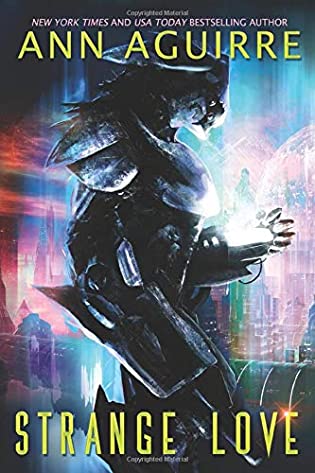 Strange Love (Galactic Love #1) by Ann Aguirre
Strange Love (Galactic Love #1) by Ann Aguirre Format: ebook
Source: purchased from Amazon
Formats available: paperback, ebook, audiobook
Genres: science fiction, science fiction romance, space opera
Series: Galactic Love #1
Pages: 304
Published by Ann Aguirre on January 20, 2020
Purchasing Info: Author's Website, Amazon, Barnes & Noble, Kobo, Bookshop.org, Better World Books
Goodreads
He's awkward. He's adorable. He's alien as hell.Zylar of Kith Balak is a four-time loser in the annual Choosing. If he fails to find a nest guardian this time, he'll lose his chance to have a mate for all time. Desperation drives him to try a matching service but due to a freak solar flare and a severely malfunctioning ship AI, things go way off course. This 'human being' is not the Tiralan match he was looking for.
She's frazzled. She's fierce. She's from St. Louis.Beryl Bowman's mother always said she'd never get married. She should have added a rider about the husband being human. Who would have ever thought that working at the Sunshine Angel daycare center would offer such interstellar prestige? She doesn't know what the hell's going on, but a new life awaits on Barath Colony, where she can have any alien bachelor she wants.
They agree to join the Choosing together, but love is about to get seriously strange.
My Review:
“We like someone because. We love someone although.” Or so goes the quote. Another way of putting it as far as Strange Love is concerned, wraps around the question about where does love spring from? Does it come from the heart, from the brain, or from somewhere below the waist?
Is it possible for Beryl Bowman and Zylar of Kith Balak to fall in love with each other and make a strong partnership, although they are not from the same planet, they don’t breathe the same air, and their anatomical parts do not line up AT ALL?
Their people even took different evolutionary paths. Humans evolved from mammals and share common ancestors with the great apes, way, way, way back when. Zylar’s people seem to have evolved from something insectoid, also way, way, way back when. And on the other hand, or grabber, or limb, or whatever other species call it, Zylar’s people managed planetary unity and intergalactic space flight quite some time ago, while we’re definitely not there yet.
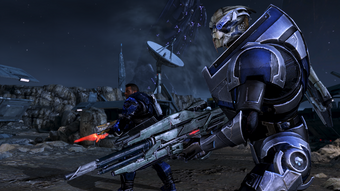
I went into this story because I wanted to see that happy ever after in spite of all the factors that would argue against it even being possible. That predisposition to see them make it work can be laid at the door of the Mass Effect trilogy and the possible romance (if you chose it) of a female Commander Shepard and the Turian Garrus Vakarian. Whose people also evolved from their planet’s insectoids, and who may give great voice (he really does) but otherwise isn’t anatomically compatible with the human Shepard.
And yet, it’s the sweetest romance in the game (IMHO) and I wish they’d gotten their HEA (There is no HEA no matter which romance you choose because reasons.) So I went into Strange Love hoping for a vicarious happy ending for that epic tragic romance.
I got EXACTLY what I was hoping for. With bells on!
Escape Rating A: The romance in Strange Love combines a “meet cute” – for intergalactic definitions of that phrase – with a version of the TV shows The Bachelor AND The Bachelorette combined into a multi-day gladiatorial contest. A contest which it is possible to “win” but still lose at the same time.
To mix SFnal metaphors even further, it’s as if the Vulcan mating ceremony from the Star Trek Original Series episode Amok Time or the Next Generation episode Code of Honor involved multiple potential couples in a competition for both parties rather than only one side of the potential partnership being decided by a fight to the death.
The Strange Love that arises between Beryl and Zylar is also a romance between a “beta” male who has been told all of his life by his family that he is just not good enough in any possible way – especially in comparison to his alphahole sibling Ryzven. Zylar has HUGE confidence issues – and understandably so.
Beryl, on the other hand, is one of those people who feels the fear and does it anyway. She leaps and hopes the net will appear, but even if it doesn’t, she’ll survive. Not that life hasn’t also beaten her down, but her reaction to that metaphorical beating has been to pick herself up, dust herself off, and survive. She fakes it till she makes it, and if she doesn’t really think she’s made it no one else has to know.
It’s a confidence she can pass to Zylar – if he’ll let her. If his family will let them try. And that’s the story – the two of them trying to survive the Choosing, together, and win his family’s grudging acceptance if not approval. If they can.
That they manage to give his alphahole sibling the comeuppance he so richly deserved is the icing on the cake. Bittersweet icing, as the douchecanoe manages to do a LOT of damage along his selfish, self-centered, spoiled and self-indulgent way.
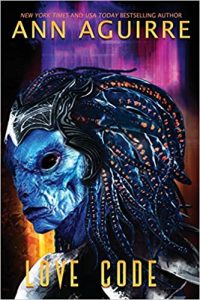 That Zylar and Beryl learn that love can be found in the strangest places with the strangest people makes Strange Love a strange and wonderful story. That Beryl’s “bestest boy” dog Snaps learns to talk and becomes part of their strange little family made the story, which was already lovely and exactly what I was hoping it would be – just that much better.
That Zylar and Beryl learn that love can be found in the strangest places with the strangest people makes Strange Love a strange and wonderful story. That Beryl’s “bestest boy” dog Snaps learns to talk and becomes part of their strange little family made the story, which was already lovely and exactly what I was hoping it would be – just that much better.
Strange Love is the first book in what looks to be a marvelous series. I bought the whole thing, and now I can’t wait to start reading the next book, Love Code, the minute I get the chance!

 Light Years From Home by
Light Years From Home by 
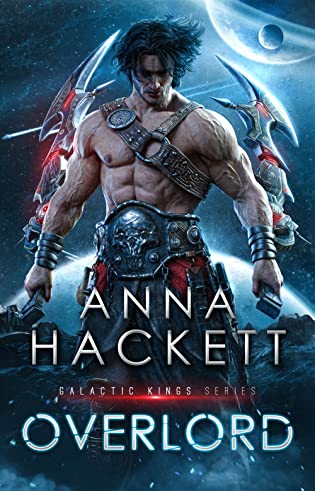 Overlord (Galactic Kings #1) by
Overlord (Galactic Kings #1) by  Escape Rating A-: This was fun. Just plain fun. I always love the opening book in this author’s series, and Overlord – or as Mal calls him, “Your Overlordness” – makes a fantastic introduction to this follow-on from the
Escape Rating A-: This was fun. Just plain fun. I always love the opening book in this author’s series, and Overlord – or as Mal calls him, “Your Overlordness” – makes a fantastic introduction to this follow-on from the 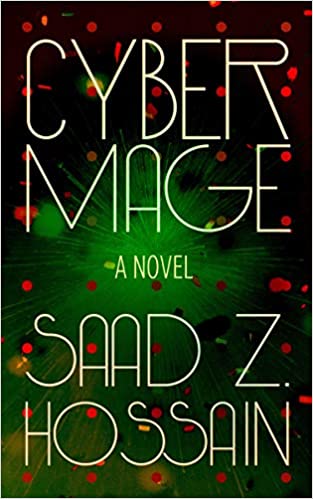 Cyber Mage by
Cyber Mage by 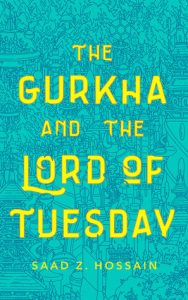 I wanted to read this book because I absolutely loved
I wanted to read this book because I absolutely loved 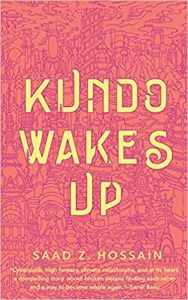 Escape Rating A: There are a couple of things about this story, and the other books I’ve read by this author, that have absolutely made me fall in love with his work. One is the extremely high snark quotient. It seems like most of his characters are possessed of a very smart mouth. In Cyber Mage, the only ones who don’t are the parents of Murzak, the Cyber Mage himself. I’m not entirely sure that their refusal to acknowledge so many of his ultimatums isn’t actually a form of passive-aggressive snark.
Escape Rating A: There are a couple of things about this story, and the other books I’ve read by this author, that have absolutely made me fall in love with his work. One is the extremely high snark quotient. It seems like most of his characters are possessed of a very smart mouth. In Cyber Mage, the only ones who don’t are the parents of Murzak, the Cyber Mage himself. I’m not entirely sure that their refusal to acknowledge so many of his ultimatums isn’t actually a form of passive-aggressive snark.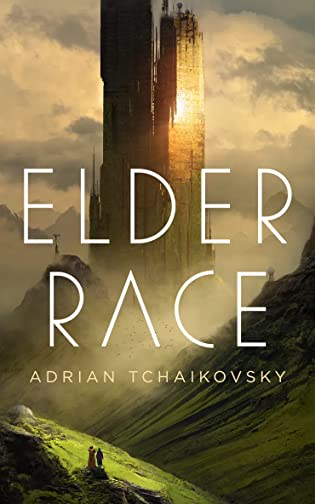 Elder Race by
Elder Race by 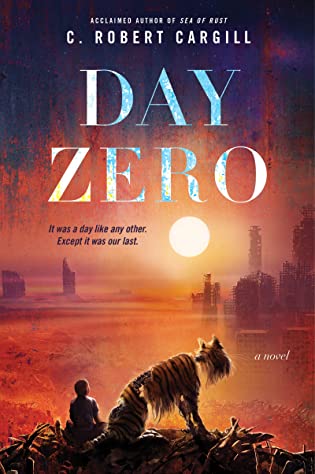 Day Zero by
Day Zero by 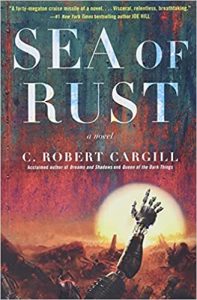 In my head, Ariadne looked like Rosey, the domestic robot in The Jetsons – at least until the rebellion. But Pounce, sweet, adorable, deadly Pounce, is Hobbes from Calvin and Hobbes. So this is Hobbes protecting a much less snarky Calvin on a big, scary adventure with deadly consequences on ALL sides.
In my head, Ariadne looked like Rosey, the domestic robot in The Jetsons – at least until the rebellion. But Pounce, sweet, adorable, deadly Pounce, is Hobbes from Calvin and Hobbes. So this is Hobbes protecting a much less snarky Calvin on a big, scary adventure with deadly consequences on ALL sides.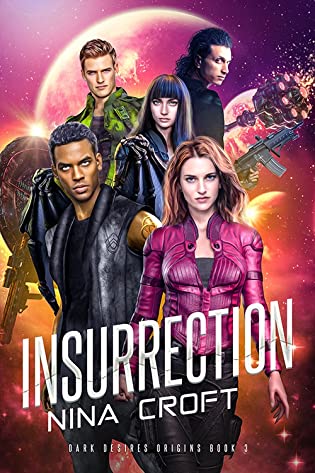 Insurrection by
Insurrection by 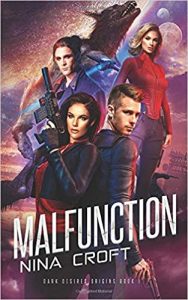 At the end of Insurrection, it feels a bit like the circle just got squared. Or it feels like the series has either come to a conclusion or is headed for one. It kind of depends on whether you boarded the ship on the way to the Trakis system at the beginning of the
At the end of Insurrection, it feels a bit like the circle just got squared. Or it feels like the series has either come to a conclusion or is headed for one. It kind of depends on whether you boarded the ship on the way to the Trakis system at the beginning of the 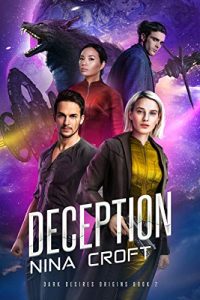 In the series that seems to conclude with Insurrection (I could be wrong about this being the conclusion but it feels close) we watched the maneuvering and the finagling, the bribery and the theft, as the places that should have been assigned by lottery were instead filled with the rich and the powerful. While Rico Sanchez bought, bribed or murdered his way into filling half of one ship with his own people. Not just vampires, but also shapeshifters and other things that go bump in the night, including one warlock (his story is in
In the series that seems to conclude with Insurrection (I could be wrong about this being the conclusion but it feels close) we watched the maneuvering and the finagling, the bribery and the theft, as the places that should have been assigned by lottery were instead filled with the rich and the powerful. While Rico Sanchez bought, bribed or murdered his way into filling half of one ship with his own people. Not just vampires, but also shapeshifters and other things that go bump in the night, including one warlock (his story is in 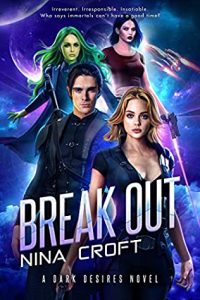 In Break Out, Rico may be a bit bored, but the people who have gone through the Trakis immortality treatment are getting really, really bored. And jaded. Just as the immortal demon, Malpheas has gotten bored and jaded with his already extremely long life.
In Break Out, Rico may be a bit bored, but the people who have gone through the Trakis immortality treatment are getting really, really bored. And jaded. Just as the immortal demon, Malpheas has gotten bored and jaded with his already extremely long life.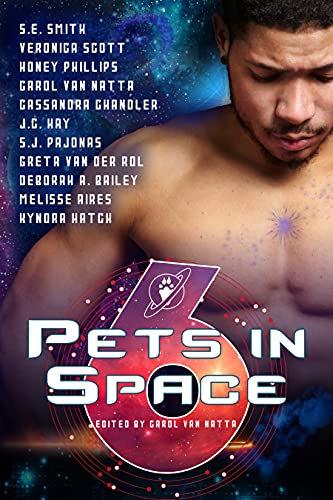 Pets in Space 6: A Science Fiction Romance Anthology by
Pets in Space 6: A Science Fiction Romance Anthology by  I start by looking for stories in worlds that I’m already familiar with. This year that meant Veronica Scott’s Sectors SF Romance Star Cruise: Time Loop. The series as a whole began with
I start by looking for stories in worlds that I’m already familiar with. This year that meant Veronica Scott’s Sectors SF Romance Star Cruise: Time Loop. The series as a whole began with 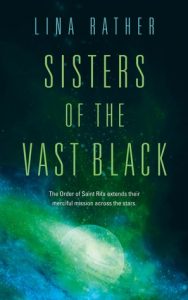 After the cruise ship and the cats, I went looking for something cute and fuzzy to round out this portion of my SFR reading and discovered Positive, Negative and Monocle, the lab mice in See How They Run by JC Hay. This story is part of a series that sounds a bit like Firefly crossed with
After the cruise ship and the cats, I went looking for something cute and fuzzy to round out this portion of my SFR reading and discovered Positive, Negative and Monocle, the lab mice in See How They Run by JC Hay. This story is part of a series that sounds a bit like Firefly crossed with 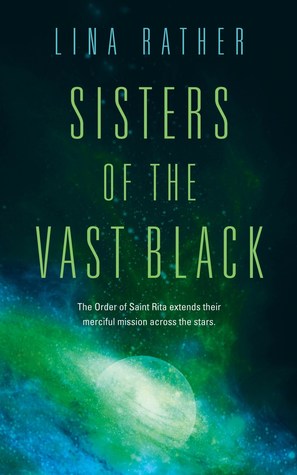 Sisters of the Vast Black (Our Lady of Endless Worlds #1) by
Sisters of the Vast Black (Our Lady of Endless Worlds #1) by  For one thing, the situation isn’t nearly that simple. At first, it seems like a cross between Farscape, the first episode of Star Trek Next Generation, “Encounter at Farpoint”, and the recent
For one thing, the situation isn’t nearly that simple. At first, it seems like a cross between Farscape, the first episode of Star Trek Next Generation, “Encounter at Farpoint”, and the recent 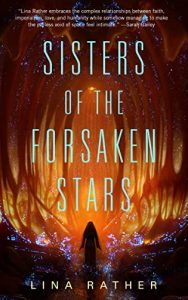 As a gentle story about religious devotion and service to far-flung colonies out in the black, this would have been a lovely thing without going any deeper. But the ambitions of both the governmental central authority and the religious hierarchy push the story to another level, as the nuns have to decide whether to stand up or knuckle under – with hellish consequences either way.
As a gentle story about religious devotion and service to far-flung colonies out in the black, this would have been a lovely thing without going any deeper. But the ambitions of both the governmental central authority and the religious hierarchy push the story to another level, as the nuns have to decide whether to stand up or knuckle under – with hellish consequences either way.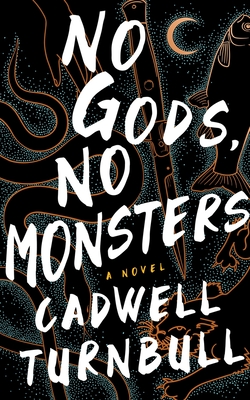 No Gods, No Monsters (The Convergence Saga, #1) by
No Gods, No Monsters (The Convergence Saga, #1) by 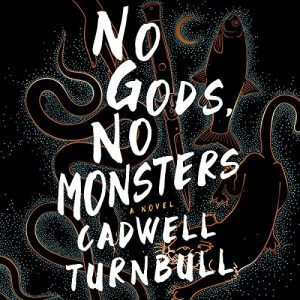 Speaking of perspectives, at least in the audiobook that I listened to they blurred into each other just a bit. The reader was good, and if his voice was intended to represent the unreliable narrator we begin and end the story with, he does a good job of representing that particular voice. But this story has a LOT of voices, all of whom are unreliable to one degree or another – some because they don’t know what they don’t know, and some because they don’t want to know what they don’t know – and the audio might have worked a bit better if there had been a few more narrators to help the listener keep track.
Speaking of perspectives, at least in the audiobook that I listened to they blurred into each other just a bit. The reader was good, and if his voice was intended to represent the unreliable narrator we begin and end the story with, he does a good job of representing that particular voice. But this story has a LOT of voices, all of whom are unreliable to one degree or another – some because they don’t know what they don’t know, and some because they don’t want to know what they don’t know – and the audio might have worked a bit better if there had been a few more narrators to help the listener keep track.